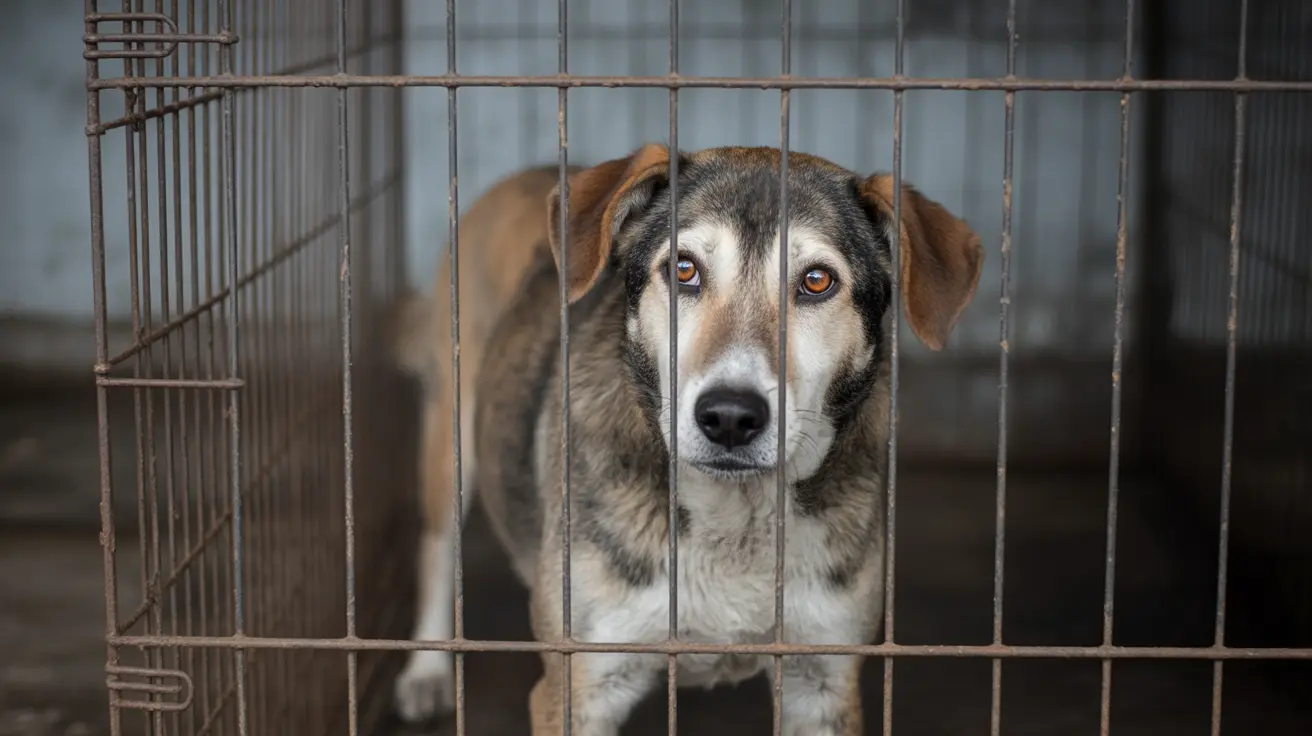When your dog's immune system encounters a challenge, lymph nodes play a crucial role in fighting off threats. Lymphadenitis in dogs occurs when these important immune system structures become inflamed, often signaling an underlying health issue that requires attention. Understanding this condition is essential for every dog owner, as early detection and treatment can significantly impact your pet's recovery.
In this comprehensive guide, we'll explore everything you need to know about lymphadenitis in dogs, from its various causes to treatment options and expected outcomes. Whether you're a concerned pet parent or simply wanting to stay informed, this information will help you better understand and respond to this common canine health condition.
What is Lymphadenitis and How Does It Affect Dogs?
Lymphadenitis occurs when a dog's lymph nodes become inflamed and enlarged. These small, bean-shaped organs are vital components of the immune system, filtering harmful substances and producing white blood cells to fight infection. When inflammation occurs, it's typically a response to an underlying condition that requires medical attention.
The condition can affect single lymph nodes or multiple nodes throughout the body, depending on the underlying cause. Common locations where owners might notice swollen lymph nodes include under the jaw, in front of the shoulders, in the armpits, behind the knees, and in the groin area.
Common Causes of Lymphadenitis
Several factors can trigger lymphadenitis in dogs:
Infections
- Bacterial infections
- Viral diseases
- Fungal infections
- Parasitic infestations
Immune System Disorders
- Autoimmune conditions
- Allergic reactions
- Sterile inflammation
Serious Medical Conditions
- Various types of cancer, particularly lymphoma
- Systemic inflammatory diseases
- Idiopathic causes (unknown origin)
Recognizing the Signs and Symptoms
Early detection of lymphadenitis often starts with recognizing these common symptoms:
- Visible or palpable swelling of lymph nodes
- Tenderness around affected areas
- Lethargy or decreased energy
- Reduced appetite
- Fever
- Depression or behavioral changes
- Difficulty swallowing (if throat lymph nodes are affected)
Diagnosis and Treatment Approaches
Veterinarians use various diagnostic tools to identify lymphadenitis and its underlying cause:
- Physical examination and node palpation
- Blood tests and complete blood count
- Fine-needle aspiration
- Biopsy of affected lymph nodes
- Imaging tests (X-rays, ultrasound)
- Specific testing for suspected infections
Treatment varies based on the underlying cause but may include:
- Antibiotics for bacterial infections
- Anti-inflammatory medications
- Immunosuppressive drugs for immune-mediated cases
- Surgery in specific cases
- Cancer treatments if applicable
Prevention and Long-term Management
While not all cases of lymphadenitis can be prevented, certain measures can help reduce risk:
- Regular veterinary check-ups
- Maintaining current vaccinations
- Proper parasite prevention
- Good nutrition and immune system support
- Prompt attention to any unusual symptoms
Frequently Asked Questions
What are the most common causes of lymphadenitis in dogs?
The most common causes include bacterial infections, viral diseases, immune system disorders, and in some cases, cancer. Each cause requires different treatment approaches, making proper diagnosis crucial.
How can I tell if my dog has lymphadenitis or swollen lymph nodes?
Look for unusual swellings in areas where lymph nodes are located, such as under the jaw, in front of the shoulders, or behind the knees. If you notice swelling along with symptoms like fever or lethargy, consult your veterinarian.
What diagnostic tests do veterinarians use to identify lymphadenitis in dogs?
Veterinarians typically start with a physical examination, followed by blood tests, fine-needle aspiration, or biopsy of affected nodes. They may also use imaging tests like X-rays or ultrasound to assess internal lymph nodes.
How is lymphadenitis in dogs treated depending on the underlying cause?
Treatment varies based on the cause but may include antibiotics for bacterial infections, anti-inflammatory medications, immunosuppressive drugs for immune-mediated cases, or specific treatments if cancer is detected.
What is the prognosis for dogs diagnosed with lymphadenitis, especially if it is cancer-related?
The prognosis varies significantly depending on the underlying cause. Many infection-related cases respond well to treatment, while cancer-related cases may require more intensive therapy and have more variable outcomes.
Remember, early detection and treatment of lymphadenitis in dogs often lead to better outcomes. If you notice any unusual swelling or symptoms in your dog, don't hesitate to consult your veterinarian for proper diagnosis and treatment.






